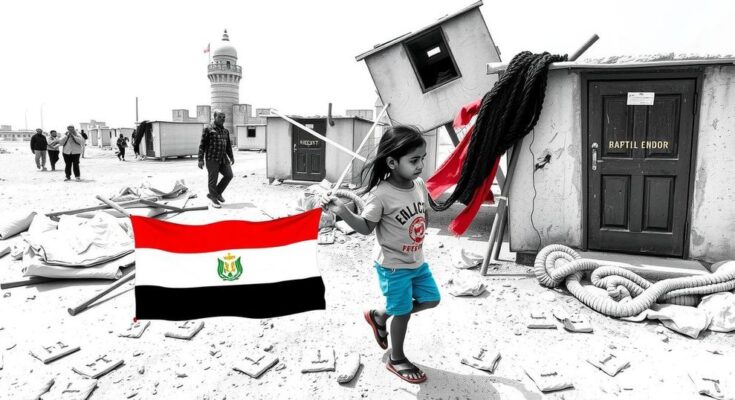The Egyptian government is re-evaluating its stance on refugees, viewing them as both a strain on resources amidst an economic crisis and a potential solution for certain fiscal challenges. Public discourse has shifted, with increased criticism directed towards migrants, particularly in light of rising costs and societal pressures. As the situation evolves, the relationship between the state and its refugee population appears to be under significant strain, reflecting broader regional issues.
In recent times, the Egyptian government has adopted a more critical stance towards its refugee population, viewing them as both a burden amid a worsening economic crisis and a potential element for strategic support. While the country had previously fostered an accommodating environment for refugees from Syria, Sudan, and Palestinians seeking asylum due to conflicts in their home nations, the ongoing economic turmoil has altered this perspective. The discussion surrounding refugees now often reflects fears over rising living costs, particularly in urban settings, leading to public sentiments blaming migrants for various societal issues. This shift in tone is evident in media representations, notably from pro-government figures.
Egypt has historically been a refuge for many displaced individuals across the Middle East, especially Syrians fleeing civil war since 2011, alongside those from Sudan, Yemen, and Palestine. However, currently, a combination of economic pressures, exacerbated by regional conflicts, has led the Egyptian government to reassess its approach to refugees. This is marked by an increasing concern that the influx of migrants is taxing the nation’s already limited resources, thereby igniting debates around their presence and impact on Egyptian society.
As Egypt grapples with significant economic challenges, the government’s shift in attitude toward its refugee population illustrates a complex interplay of social, economic, and political factors. Blaming refugees for local economic strain reflects broader regional tensions and local sentiments that may influence future policies. The balance between providing refuge and addressing national concerns has become increasingly delicate, posing critical questions regarding human rights and national identity in Egypt’s current social landscape.
Original Source: www.nytimes.com




